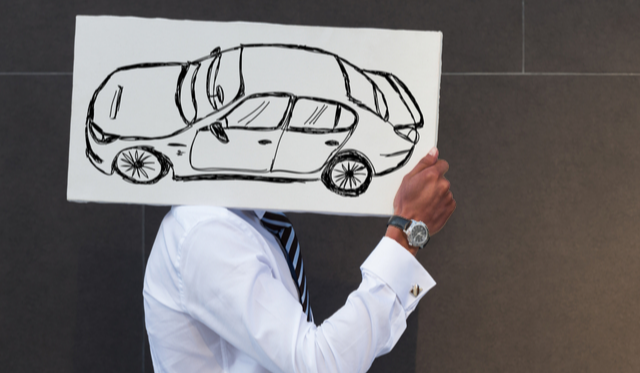
There are certain benefits to both buying and leasing a car. The question is: Which of those benefits matter the most to you?
Leasing looks really attractive on paper.
Leasing a vehicle means constantly driving a shiny, new car that is under warranty. Generally, when a person decides to lease it’s because they’re focused on the short-term. Leasing means lower monthly payments and little-to-no down payment since you'll be paying for your usage of a car and not the car’s full value. That may sound great, but it comes at a price.
Leasing a car means giving up a piece of your freedom.
You may be considering leasing because you want a new car, or because the payments are easier to make. That's understandable. However, before you pull the trigger on a lease, make sure you take some time to understand how leasing actually works. When leasing, make careful note of all the clauses in the contract, such as additional wear and tear charges. Most lease plans have a limit on the number of miles you can drive, and if you break your lease early you could be on the hook to pay some steep penalties.
Comparing the two major finance choices.
Ownership
| Buying | Leasing |
|
You own the vehicle. It’s yours as long as you want it. |
You’re borrowing the vehicle. You get to drive it around but must return it at the end of the lease unless you decide to buy it. |
Upfront payments
| Buying | Leasing |
|
Often requires a down payment, though usually you can put down as little or as much as you want. If you want to skip the down payment altogether, Louisiana FCU offers 100% financing, meaning we'll finance the entire purchase price and eliminate the need for a down payment. |
Includes the first month’s payment, a refundable security deposit, an acquisition fee, a down payment, taxes, registration, and other fees. |
Monthly payments
| Buying | Leasing |
|
Loan payments are usually higher than lease payments because you’re paying off the entire purchase price of the vehicle, plus interest. Luckily, most credit unions have a favorable rate that makes paying off the car relatively painless. |
Lease payments are almost always lower than loan payments because you’re only paying for the vehicle’s depreciation during the lease term, plus interest charges. While it may be cheaper than buying, the payments are ongoing. You'll always have a car payment if you continue to lease. |
Early termination
| Buying | Leasing |
|
You can sell or trade in your vehicle at any time and use the money from the sale to pay off your loan balance. |
If you end the lease early, penalty fees can cost you as much as it would to just stick with the contract. |
Mileage
| Buying | Leasing |
|
You’re free to drive as many miles as you want. Keep in mind that higher mileage lowers the vehicle’s trade-in or resale value. |
Your lease will specify the number of miles that you can put on the car during the term, often 12,000 to 15,000 per year. If you exceed your limit, you’ll have to pay up. |
Maintenance
| Buying | Leasing |
|
Need to repair your car? That's your call to make. Vehicle damage can lower the vehicle’s trade-in or resale value. |
You won't need to perform any major car repairs. However, you may face additional charges for any scratches or dings to the car or worn-out tires if you don't pay to fix those imperfections before returning the vehicle. |
Cost comparison: Buying versus leasing
Consumer Reports compared the costs of financing a car with a six-year loan vs. two back-to-back three-year leases, based on a 2017 Mazda CX-5 Touring valued at $29,429.
| Six-year loan | Three-year lease | |
| Monthly payment | $416 | $287 |
| Down payment | $2,000 | - |
| Cash due at signing | - | $2,000 |
| Interest rate | 2.9% | 0.024% |
| Total paid after three years | $16,976 | $12,332 |
| Total paid after six years | $31,952 | $24,664 (back-to-back leases, including two payments of $2,000 at signing) |
| Resale value after six years | $9,675 | You do not have a car to sell. |
As you can see, purchasing a vehicle means you'll have higher monthly payments and a down payment. However, since you own the car, future you will have no payments to make after six years. If you drive the car as long as the cost of maintenance does not exceed the cost of replacing it, you'll end up saving money.
When choosing to buy or lease, consider all the factors and decide what’s more important to you in your particular situation. If you're someone who requires a stylin' new car, leasing might be your only option. However, leasing will always be more expensive than long-term buying, since the monthly payments never stop. Unless you have a habit of buying and selling cars every few years, taking out a loan is the more cost-effective approach.
Source:
https://www.consumerreports.org/buying-a-car/leasing-vs-buying-a-new-car/
Like this article? Subscribe to our blog and have expert money tips delivered to your inbox weekly.



